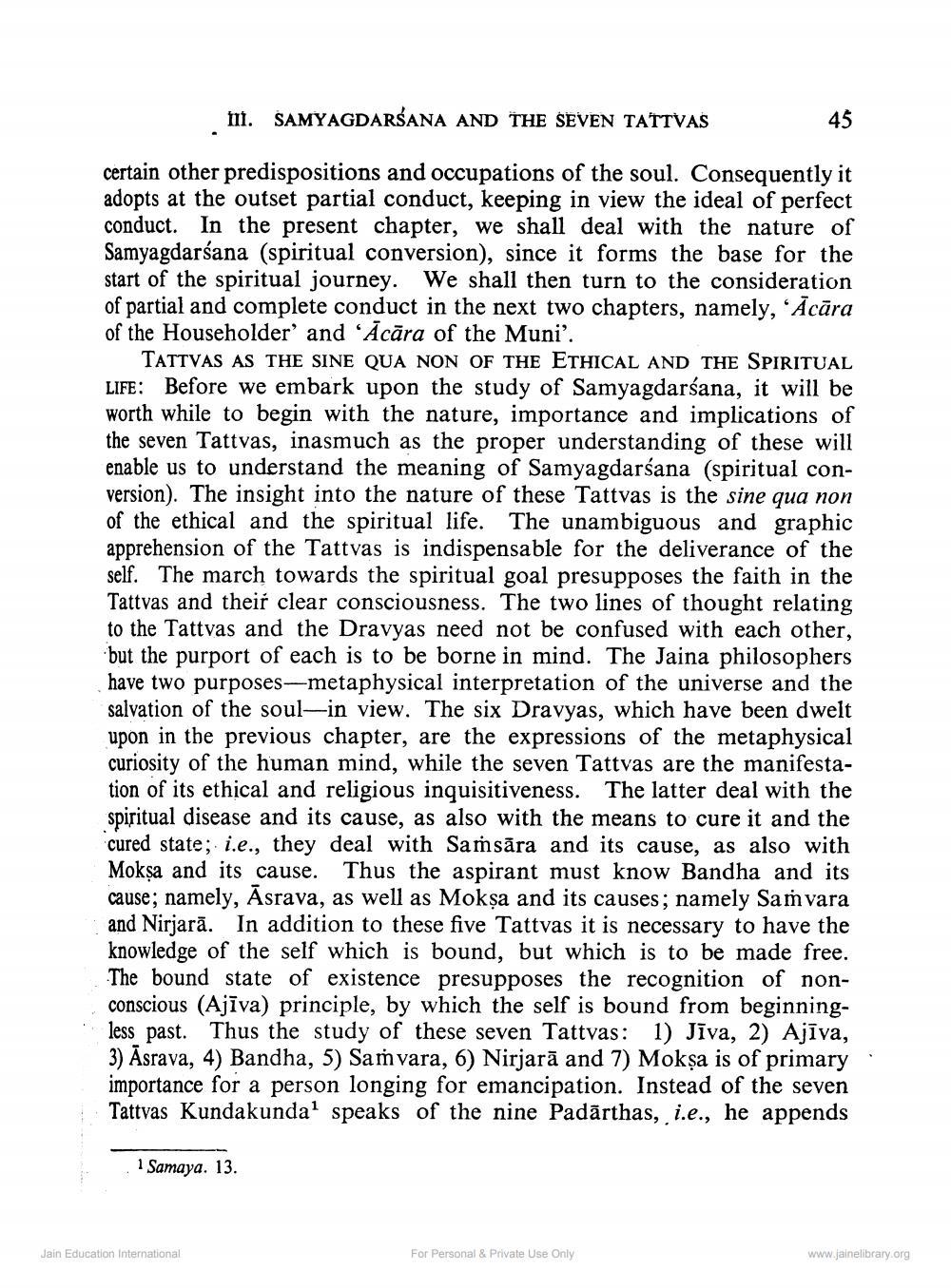________________
III. SAMYAGDARSANA AND THE SEVEN TATTVAS
45
certain other predispositions and occupations of the soul. Consequently it adopts at the outset partial conduct, keeping in view the ideal of perfect conduct. In the present chapter, we shall deal with the nature of Samyagdarśana (spiritual conversion), since it forms the base for the start of the spiritual journey. We shall then turn to the consideration of partial and complete conduct in the next two chapters, namely, 'Ācāra of the Householder' and 'Acara of the Muni'.
TATTVAS AS THE SINE QUA NON OF THE ETHICAL AND THE SPIRITUAL LIFE: Before we embark upon the study of Samyagdarśana, it will be worth while to begin with the nature, importance and implications of the seven Tattvas, inasmuch as the proper understanding of these will enable us to understand the meaning of Samyagdarśana (spiritual conversion). The insight into the nature of these Tattvas is the sine qua non of the ethical and the spiritual life. The unambiguous and graphic apprehension of the Tattvas is indispensable for the deliverance of the self. The march towards the spiritual goal presupposes the faith in the Tattvas and their clear consciousness. The two lines of thought relating to the Tattvas and the Dravyas need not be confused with each other, but the purport of each is to be borne in mind. The Jaina philosophers have two purposes-metaphysical interpretation of the universe and the salvation of the soul-in view. The six Dravyas, which have been dwelt upon in the previous chapter, are the expressions of the metaphysical curiosity of the human mind, while the seven Tattvas are the manifestation of its ethical and religious inquisitiveness. The latter deal with the spiritual disease and its cause, as also with the means to cure it and the cured state; i.e., they deal with Samsara and its cause, as also with Mokṣa and its cause. Thus the aspirant must know Bandha and its cause; namely, Āsrava, as well as Mokṣa and its causes; namely Samvara and Nirjara. In addition to these five Tattvas it is necessary to have the knowledge of the self which is bound, but which is to be made free. The bound state of existence presupposes the recognition of nonconscious (Ajīva) principle, by which the self is bound from beginningless past. Thus the study of these seven Tattvas: 1) Jīva, 2) Ajīva, 3) Asrava, 4) Bandha, 5) Samvara, 6) Nirjarā and 7) Moksa is of primary importance for a person longing for emancipation. Instead of the seven Tattvas Kundakunda1 speaks of the nine Padarthas, i.e., he appends
1 Samaya. 13.
Jain Education International
For Personal & Private Use Only
www.jainelibrary.org




